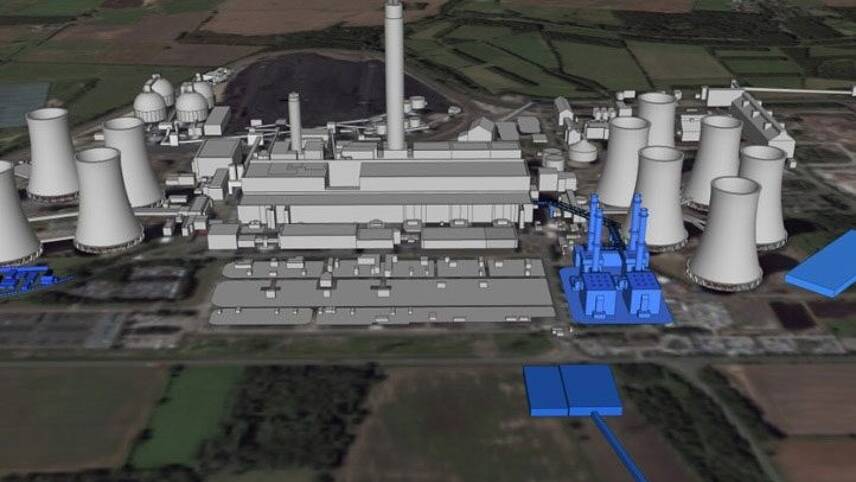Register for free and continue reading
Join our growing army of changemakers and get unlimited access to our premium content

Pictured: A CGI mock-up of the proposed plant. Image: Drax
Environmental law firm ClientEarth opened legal proceedings against the government last January, arguing that emissions generated by the power plant would take the UK beyond the limits of its legally-binding climate commitments. Taking into account the planned coal phase-out and commitments around nuclear and renewable energy, ClientEarth argued that the plant, in Yorkshire, would account for up to 75% of the UK power sector’s annual emissions once operational.
ClientEarth also pointed out that the planning inspectorate recommended that ministers refuse planning permission for the 3.6GW gas plant on climate grounds. Then-BEIS-Secretary Andrea Leadsom went against this advicce.
But ClientEarth’s bid to sue the government was thrown out by the High Court in May 2020 and, this week, by the Court of Appeal.
Representatives from the courts argued that major UK energy projects should not be rejected on climate grounds under the current planning frameworks.
ClientEarth said in a statement that this justification allows decision-makers to “hide behind planning policy to justify business-as-usual approvals of highly polluting projects”. However, the organisation will not be escalating the case to the Supreme Court.
Drax has repeatedly told members of the press and public that its overarching ambition is to be removing, not adding carbon to the atmosphere. The firm announced a commitment to become a ‘carbon-negative’ business by 2030 back in 2019. Its plans for meeting this target are centred around switching from coal to biomass and then capturing emissions.
Green groups, however, have argued that Drax’s approach is hypocritical and that the firm is underestimating the impact of the gas plant on a national scale.
“The government must U-turn and halt climate-wrecking projects, while the onus is also on Drax to do the right thing and take this project off the table,” Greenpeace UK’s director of policy Doug Parr said.
The Court of Appeal’s decision is not, however, an automatic ‘go-ahead’ for the project. Drax has said it will need to secure a capacity market contract from the government before starting construction.
‘Gas is over’
In related news, the President of the European Investment Bank (EIB) used his podium as he presented the annual results to justify the Bank’s decision to exit fossil fuels.
“To put it mildly, gas is over,” Dr Werner Hoyer said at the press conference.
“This is a serious departure from the past, but without the end to the use of unabated fossil fuels, we will not be able to reach the climate targets,” he added.
The EIB has committed to stop financing fossil fuel projects by 2021. Its ‘climate roadmaps’ detail plans to use at least 50% of its activity to support dedicated sustainable projects and industries, including those which assist with climate adaptation and mitigation and those which conserve and restore nature.
As the Brexit transition period has now ended, the UK is not eligible for EIB funding. Chancellor Rishi Sunak used the spending review late last year to confirm plans for a national investment bank. The bank will be based in the North of England and begin operating this spring. Green groups are urging the Treasury to confirm that the bank will have sustainability-related core remits in line with climate science.
Sarah George


Please login or Register to leave a comment.